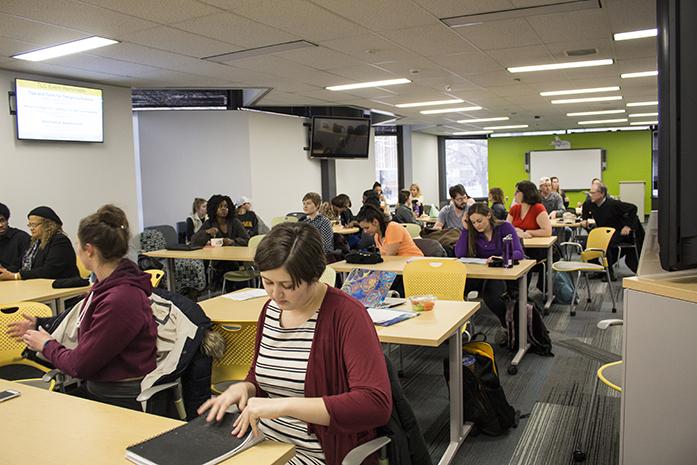Last week, DI columnist Wylliam Smith wrote a piece criticizing treating black students as tokens. Smith gave a definition of tokenism and dissected its racist implications on college campuses. In response, one Facebook commenter wrote, “So all whites are evil and anyone with white heritage are evil?”
The word “white” was not mentioned once in Smith’s article.
Recently, various writers of color at The Daily Iowan have written about how their racial identity has affected their experience at the UI. In addition to positive responses, there has also been a troubling reflex to deflect, go on the defensive, or disbelieve when racism is the topic of conversation.
According to a 2017 NPR poll, more than half of whites — 55 percent — believe there is discrimination against white people in America today. The reason for this isn’t quite as straightforwardly documented, but the idea of white privilege is certainly a point of contention. The concept gained prominence in academia in the 1980s. In her article “White Privilege: Unpacking the Invisible Knapsack,” white scholar Peggy McIntosh described her invisible advantages, including being able to shop without fear of being followed and use credit cards without her race being used to question her financial reliability.
RELATED: Smith: Do not make Tokens of Black Students
White privilege is also quantifiable. According to a study from the National Bureau of Economic Research, résumés with white-sounding names receive 50 percent more callbacks than otherwise identical ones with black-sounding names.
While the rationale behind white privilege — that white Americans systemically benefit from the oppression of people of color — is well-supported, it’s understandable why some white people react defensively to the term. Job loss from globalization, flat wages, and the decline of unions have all hindered the progress of white communities. Some white people feel so victimized by the notion they have privilege that they believe such policies as affirmative action make people of color the privileged ones. As a commenter told one of our writers of color, “You are in the most benefited of the American people.”
And then, of course, there are the people who cannot believe racism is a problem in Iowa City. They assume people of color must be “looking for reasons to feel that way” or say that their personal experience here was inclusive. Sure, it’s comforting to imagine Iowa City as a progressive utopia immune from the prejudices that run deep in all of us. But in reality, Latinos in Iowa City face the worst home-loan discrimination in the country; they were nearly four times more likely to be denied conventional home loans than non-Hispanic whites in 2016, according to federal data.
RELATED: Iowa in Review: Pseudo Liberals & Racism
While some of these responses may be out of malice, I think most come from a place of fear — fear of white people’s issues being minimized or fear that racism flourishes even in the most “inclusive” cities. But it doesn’t have to be this way.
Acknowledging the existence of white privilege and discrimination against minorities isn’t the same as saying all white people are evil or have easy lives. And just because someone hasn’t personally witnessed racism in Iowa City, doesn’t mean it’s not real. People of color say that it is real. While acknowledging this may be painful, ignoring it is far more damaging.
As a community, we need to start believing each other’s experiences, and listening without assuming others’ words are a veiled personal attack. There’s no doubt whether our country’s discourse is polarized. But just because political pundits on cable television are at each other’s throats doesn’t mean we have to be. Talking about race is uncomfortable, but it is necessary. It becomes productive when we are truly open to listening.



